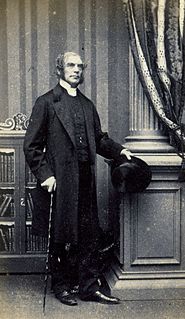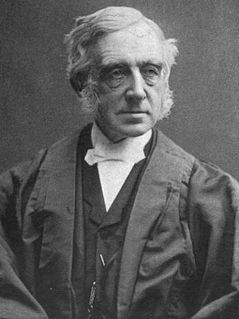A Quote by Rowan Williams
As the gospels present it to us, the mission of Jesus of Nazareth is about the way in which the community of God's people - historically, the Jewish people who had first received the law and the covenant - is being re-created in relation to Jesus himself.
Related Quotes
The entire Jesus concept, that human sacrifice should be the substratum of a moral religion of love, strikes me as incongruous. God condemned us and Jesus saved us, and they are actually the same being? Christianity is the idea that you are so abhorrent that God had to kill himself. He had to embody the human form and send himself on a bizarre suicide mission just to revoke the disgustingness of the humans he created. I balk at suggestions that these ideas dictate to the concepts of morality and love.
This kingdom of God life is not a matter of waking up each morning with a list of chores or an agenda to be tended to, left on our bedside table by the Holy Spirit for us while we slept. We wake up already immersed in a large story of creation and covenant, of Israel and Jesus, the story of Jesus and the stories that Jesus told. We let ourselves be formed by these formative stories, and especially as we listen to the stories that Jesus tells, get a feel for the way he does it, the way he talks, the way he treats people, the Jesus way.
Jesus told parables. When he wanted to say something really profound about God, he went into parable. I don't find it surprising then that when earliest Christianity wanted to say something profound about Jesus, they went into parable too. That doesn't mean everything is a parable. When it says Jesus was in Nazareth I don't think that's a parable, I think Jesus was in Nazareth. When it talks about Jesus walking on the water, I don't think that's the point at all, I think the point is that the church without Jesus sinks.
The gospel is saying that, what man cannot do in order to be accepted with God, this God Himself has done for us in the person of Jesus Christ. To be acceptable to God we must present to God a life of perfect and unceasing obedience to his will. The gospel declares that Jesus has done this for us. For God to be righteous he must deal with our sin. This also he has done for us in Jesus. The holy law of God was lived out perfectly for us by Christ, and its penalty was paid perfectly for us by Christ. The living and dying of Christ for us, and this alone is the basis of our acceptance with God
When the people of God abandoned the covenant of love and fidelity, drawn as we are by the appeal of shallow, empty pleasures, God removed every possible obstruction to the covenant by being faithful for us, by becoming like us and subjecting Himself to the very worst within us, loving us all the way to the cross and all the way out of the grave.
Acts 10:38 says, “See how God anointed Jesus of Nazareth who went about doing good.” He just got up every day and did good. Everywhere he went, even though he had a purpose and he was headed somewhere, he let himself be interrupted by the needs of people. So often we study the steps of Jesus. Maybe we need to study the stops of Jesus. The things that he stopped for, the things that interrupted his plan, where he would alter his plan and help somebody here and there.
On the Cross the Jesus of the Four Gospels, who was God, cried out My God, my God, why hast thou forsaken me? God cannot forsake himself, Jesus was God himself. Yet God forsook Jesus, and the latter cried out to know why he was forsaken. Any able divine will explain that of course he knew, and that he was not forsaken. The explanation renders it difficult to believe the dying cry, and the passage becomes one of the mysteries of the holy Christian religion, which, unless a man rightly believe, without doubt he shall perish everlastingly.
It is inconceivable that the God who gives Himself in His Son to save us, should have created some people ordained to evil and damnation. There can only be one predestination to salvation. In and through Jesus Christ all people are predestined to be saved. Our free choice is ruled out in this regard. God wants free people, except in relation to this last and definitive decision. We are not free to decide and choose to be damned.
The Bible is a collection of writings by lots of different people written over maybe a thousand years, from a number of centuries before Jesus to a century after Jesus. I often like to refer to it as "the Scriptures" to make that point about it being lots of writings that were originally separate. What these writings have in common is that "the Old Testament" is writings that grabbed the Jewish people; writings that convinced them that they were God's word to them. And "the New Testament" is writings that grabbed people who believed in Jesus in the same way.
I think the best thing a person can do is to read through the Gospels in the Bible and really look at Jesus, because if a person does this, they will realize that the Jesus they learned about in Sunday school or the Jesus they hear jokes about or the skinny, Gandhi Jesus that exists in their imaginations isn't anything like the real Jesus at all.
To follow Jesus implies that we enter into a way of life that is given character and shape and direction by the one who calls us. To follow Jesus means picking up rhythms and ways of doing things that are often unsaid but always derivative from Jesus, formed by the influence of Jesus. To follow Jesus means that we can't separate what Jesus is saying from what Jesus is doing and the way that he is doing it. To follow Jesus is as much, or maybe even more, about feet as it is about ears and eyes" (The Way of Jesus, Eugene H. Peterson, 22).
Now let us gather into one bouquet, from the King's garden, these seven fragrant flowers: Jesus the Son of God; Jesus our sin-bearer; Jesus the giver of eternal life; Jesus the keeper of our undying souls; Jesus the hearer of our prayers; Jesus the chastener who can turn crosses into crowns; and Jesus the wonder-worker who changes us into eternal likeness unto Himself! These flowers will keep sweet till heaven dawns.
Fortunately Jesus didn't leave [the disciples]-or any of us-without hope or direction. Where we fail, Jesus succeeded. The only One who as able to recognize and follow His purpose from the beginning was Jesus. He alone was able to obey consistently and please God completely. And His divine mission was to make a way for each of us to do the same.





































